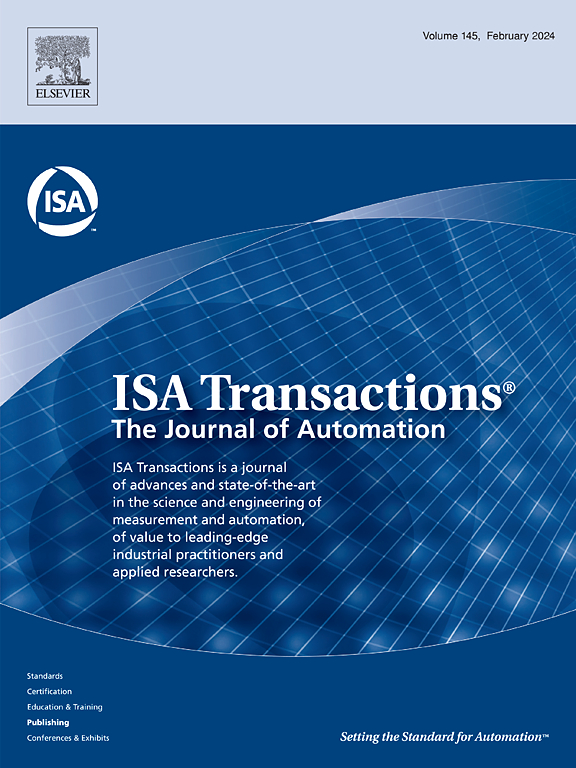基于LMI-LQR的风电转换系统模块化三相二次升压变换器PI控制器优化设计。
IF 6.5
2区 计算机科学
Q1 AUTOMATION & CONTROL SYSTEMS
引用次数: 0
摘要
本文提出了一种创新的单级模块化三相功率因数校正(PFC)变换器,具有更少的电流控制器。该技术利用了一种实用的DC-DC二次升压变换器(QBC)用于风能转换系统(WECS)中的PFC。建立了非理想QBC等效电路,推导了其小信号模型,并对内电流环和外电压环进行串级控制。建议的线性二次型调节器用于基于线性矩阵不等式的PI控制策略,确保在线路、伺服和调节操作中具有高功率因数(PF)和低总谐波失真(THD)百分比的正弦供电电流,同时解决供电电压幅度的不平衡问题。此外,PFC方法调节负载电压,并且电流控制器的最小数量减少了计算任务,损耗和总体成本。利用MATLAB/Simulink对该系统进行仿真,该系统采用扩展对称分量法生成参考电流。使用DSPIC30F2010控制器对300 W原型机在各种工作条件下验证了QBC的有效性。结果证实了所提出的技术的有效性,展示了在更少的电流控制器下提高的效率。本文章由计算机程序翻译,如有差异,请以英文原文为准。
Design of optimal LMI-LQR based PI controller for modular three-phase quadratic boost converters in wind energy conversion systems to mitigate current harmonics
The article proposes an innovative single-stage modular three-phase Power Factor Correction (PFC) converter featuring fewer current controllers. This technique leverages a practical DC-DC Quadratic Boost Converter (QBC) for PFC in Wind Energy Conversion Systems (WECS). An equivalent circuit with the non-ideal QBC is established and its small-signal model is derived, followed by a cascade control of inner current loops and outer voltage loops. The suggested linear quadratic regulator for linear matrix inequality-based PI control strategy ensures sinusoidal supply currents with a high power factor (PF) and low percentage Total Harmonic Distortion (THD) for line, servo, and regulatory operations, while addressing imbalances in the magnitude of the supply voltage. Additionally, the PFC method regulates the load voltage, and the minimal number of current controllers reduces computational tasks, losses, and overall cost. MATLAB/Simulink is used to simulate the suggested system, which uses the extended symmetrical components approach for reference current generation. The QBC's effectiveness is validated under diverse working conditions using a DSPIC30F2010 controller for a 300 W prototype. The results affirm the efficacy of the proposed technique, showcasing improved efficiency with fewer current controllers.
求助全文
通过发布文献求助,成功后即可免费获取论文全文。
去求助
来源期刊

ISA transactions
工程技术-工程:综合
CiteScore
11.70
自引率
12.30%
发文量
824
审稿时长
4.4 months
期刊介绍:
ISA Transactions serves as a platform for showcasing advancements in measurement and automation, catering to both industrial practitioners and applied researchers. It covers a wide array of topics within measurement, including sensors, signal processing, data analysis, and fault detection, supported by techniques such as artificial intelligence and communication systems. Automation topics encompass control strategies, modelling, system reliability, and maintenance, alongside optimization and human-machine interaction. The journal targets research and development professionals in control systems, process instrumentation, and automation from academia and industry.
 求助内容:
求助内容: 应助结果提醒方式:
应助结果提醒方式:


